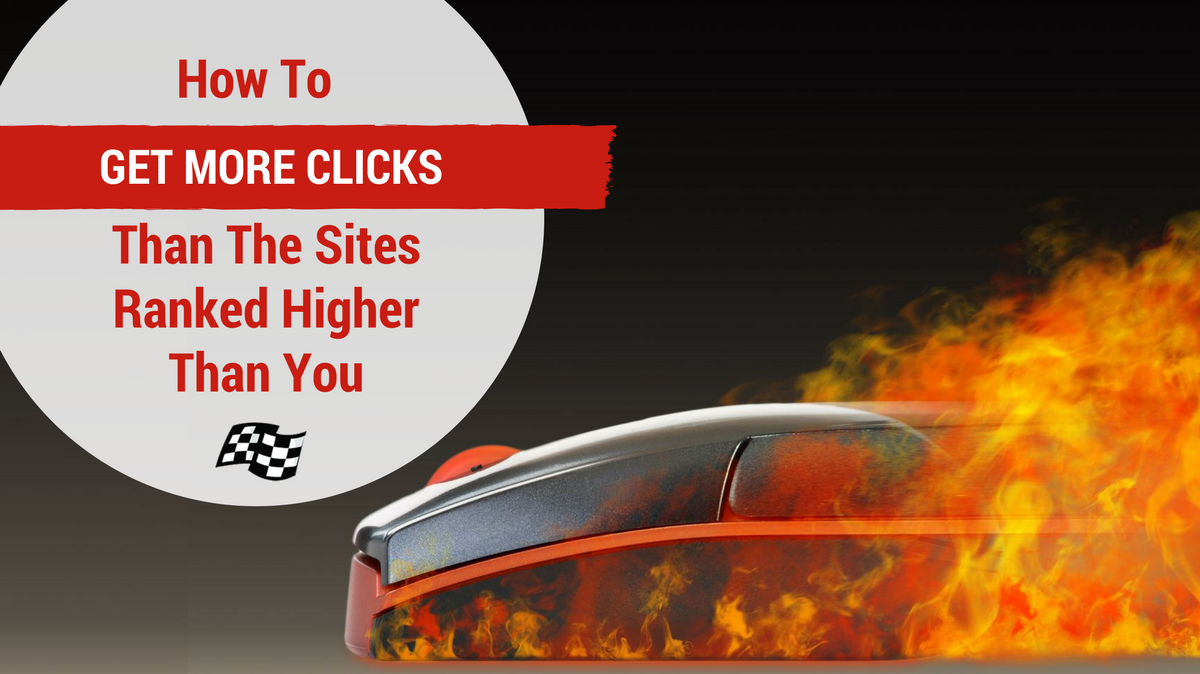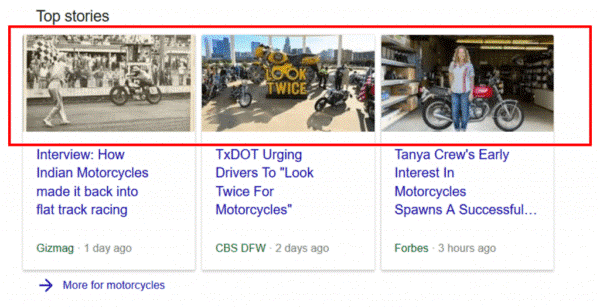
Let’s face it, getting top search engine rankings is becoming more and more difficult. Search engines keep giving searchers ever more reasons not to leave their search results. If they do, leave, Google wants to make sure they are making money off it. And so you have featured snippets and ads displaying before the organic rankings you work so hard to get.
So how do you compete in a world where the opportunity for exposure high up on the SERPs is all but impossible?
Compete for clicks, not position.
I’m not suggesting you give up on SEO or trying to rank organically. But what I am saying is even if you get the top position, if you’re not competing for clicks, the sites below you can still outperform in traffic delivery.
So regardless of where you land on the search results page, here are four things that you want to do to make sure you’re getting every click you deserve.
1. Get Attention with Title Tags
 In order to entice a click, you have to get the searcher’s attention. Since each page’s title tag is typically what Google will display as the clickable link in the search results, you need to be sure this stands out.
In order to entice a click, you have to get the searcher’s attention. Since each page’s title tag is typically what Google will display as the clickable link in the search results, you need to be sure this stands out.
The example above isn’t quite the title tag to our home page as Google has chosen to rewrite if for the query, but it’s close. We actually put our name at the end rather than the front of the tag. Either way, the point we want to make gets across.
You want the title tag to stand out from the rest of the sites on the page. It has to give the searcher precisely what they are looking for while also offering something of unique value.
Do a quick search for your keywords and scan the title tags that come up in the search results. You’re not doing this so you can mimic, but so you can see what’s missing. If you can offer something that the other links don’t, you’ve got yourself an attention-getting title tag. Which, in this case, is a good thing.
2. Produce Confirmation with URLs

The URL provides visual confirmation to the searcher that they’ll land on a page highly relevant to their interest. Don’t settle for long, complicated, or jumbled URLs. Instead, deliberately use URLs that are succinct, to the point, and provide a very clear indication as to the page’s content.
Where a title tag and meta description are often optimized, that optimization doesn’t always represent the truth of the page. Rather, it represents the truth of what the optimizer is trying to achieve — which is to bring in more traffic.
URLs, on the other hand, have a way of being a bit more honest. You’ve only got a few words before the URL gets overly cumbersome, so it has to be tight. As far as the construct of the URL, you’ve got the site name, the page category, and the page file name. All of those provide a very strong indicator of what the actual content of the page will be.
3. Create Interest with Images

There are a handful of search types that will produce images in the search results. News and image search both come to mind, but you never know when Google will determine that a search is worthy of displaying an image. If you have that opportunity, don’t let it go to waste.
The image you select will help you stand out–or get overlooked. The more intriguing the image is, the more likely your ranking is to get clicked.
Take a look at the three images in the search result above. The one on the left does the best job of capturing my attention. The other two don’t really do much for me. So which would I be more likely to click on? If the image was the deciding factor, I’d click on the far left. However, if the title had already captured my attention, it wouldn’t even be a competition.
4. Generate Action with Meta Descriptions

No conversion process would be complete without a call-to-action. People have to be told what to do. Even if the thing they want is staring them right in the face, many people are like a deer in the headlights and wind up taking no action at all.
The call-to-action is how you tell the deer to get off the road into safety. But in this case, you’re telling the searcher to get off Google and onto your site.
And I’m not just talking about saying “click here.” You need to use your description to write a compelling reason to click. What are the benefits the searcher will get when they click? What problems will be solved? What value will be gained?
The description is your last chance to get the visitor to take action. Yes, you do have to spell it out for them.
Rankings Matter, But Clicks Matter More
Yes, rankings are still important. You can’t get the click if you’re not in click-range. But once you are, stop competing for position and start competing for clicks. Not only is that easier, but Google tends to reward the sites that get clicked more which will naturally push you up higher on the page.

2 Responses to How to Get More Clicks Than the Sites Ranked Higher Than You